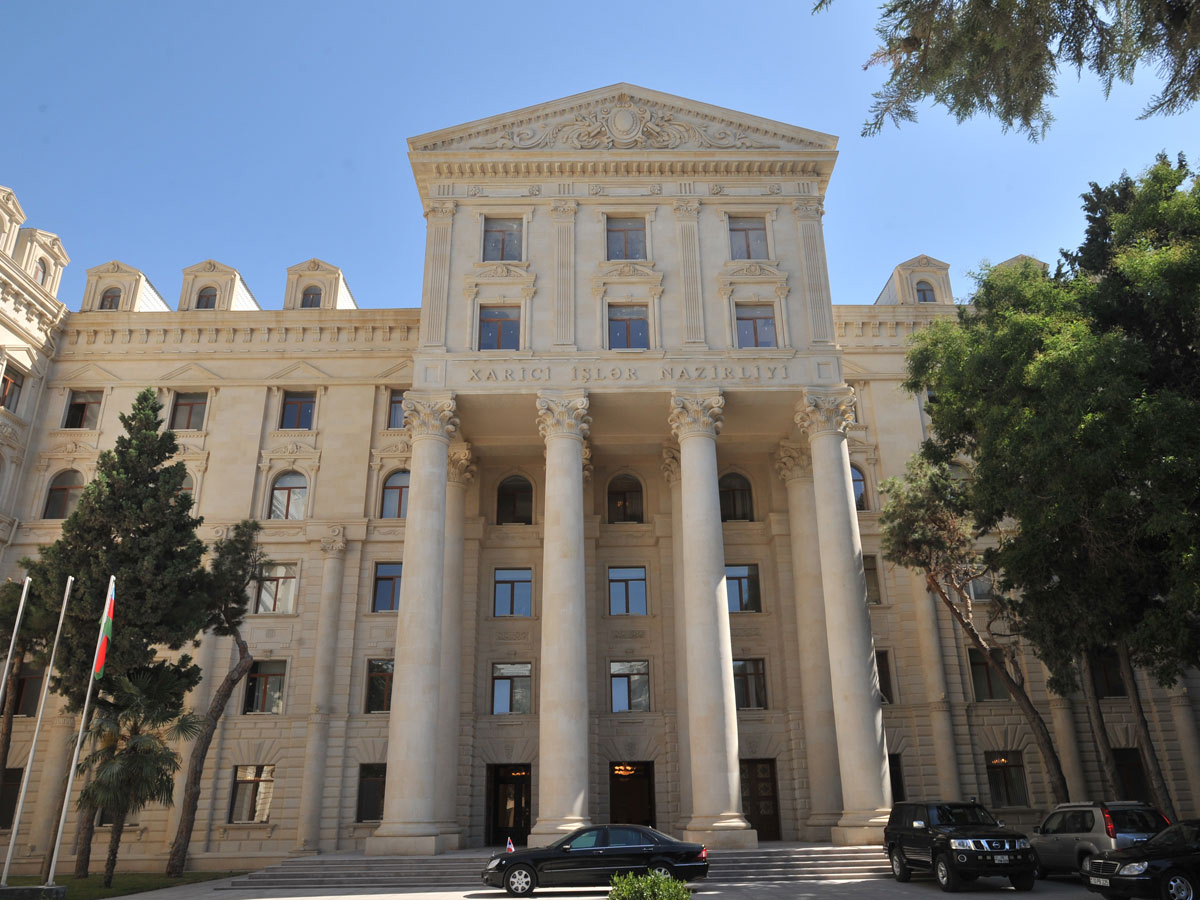Baku, Azerbaijan, April 16
Trend:
Armenia's disrespect to decisions and resolutions of the international organizations in connection with the settlement of the Nagorno-Karabakh conflict shows that the country is far from the civilized world, Hikmet Hajiyev, the spokesperson of Azerbaijan's Foreign Ministry said in connection with the statement of Armenian Deputy Minister of Foreign Affairs Shavarsh Kocharyan about the decision taken unanimously at the level of heads of state and government of the member countries of the OIC at the XIII Summit of the organization in Istanbul.
He noted that this сomment of the Deputy Foreign Minister of Armenia, which is far from diplomatic etiquette, firstly should be assessed as disrespect to the member countries of the OIC.
"OIC member countries, on the basis of norms and principles of international law and the UN Charter, have a unambiguous and fair position on the Armenian-Azerbaijani conflict. This position has found its categorical reflection respectively in the 16th and 17th paragraphs of the communiqué accepted unanimously at the level of heads of state and government of the member countries of the OIC at the XIII Summit of the organization in Istanbul", Hajiyev said.
Foreign Ministry's spokesperson said that the position of the member countries of the OIC regarding the Armenian aggression against Azerbaijan, requires Armenia's execution of UN Security Council resolutions number 822, 853, 874 and 884 and complete and unconditional withdrawal of Armenian armed forces from the occupied Nagorno-Karabakh and other surrounding regions of Azerbaijan.
"Also in the final communiqué member countries categorically condemn Armenia's successive attacks in the occupied territories, which lead to damage of the civilian population, social and economic infrastructure, as well as other objects", he added.
He also added that according to the decision taken at the summit of the OIC the Contact Group on aggression of Armenia against Azerbaijan at the level of foreign ministers was established.
Hajiyev said that the next Armenian provocation on the night of April 2 on the contact line of troops, which led to the death and injury of civilians, the country's disrespect to decisions and resolutions of the international organizations in connection with the settlement of the Nagorno-Karabakh conflict show that Armenia is far from the civilized world and Yerevan's regime poses a serious threat to regional peace and stability.
"There is a need for serious and effective steps of the international community to put an end to Armenia's lawlessness and impunity", Hajiyev stressed.
On the night of April 2, 2016, all the frontier positions of Azerbaijan were subjected to heavy fire from the Armenian side, which used large-caliber weapons, mortars and grenade launchers.
The armed clashes resulted in deaths and injuries among the Azerbaijani population. Azerbaijan responded with a counter-attack, which led to liberation of several strategic heights and settlements.
Military operations were stopped on the line of contact between Azerbaijani and Armenian armies on Apr. 5 at 12:00 (UTC/GMT + 4 hours) with the consent of the sides, Azerbaijan's Defense Ministry earlier said. Ignoring the agreement, the Armenian side again started violating the ceasefire.
The conflict between the two South Caucasus countries began in 1988 when Armenia made territorial claims against Azerbaijan. As a result of the ensuing war, in 1992 Armenian armed forces occupied 20 percent of Azerbaijan, including the Nagorno-Karabakh region and seven surrounding districts. The 1994 ceasefire agreement was followed by peace negotiations.
Armenia has not yet implemented four UN Security Council resolutions on withdrawal of its armed forces from the Nagorno-Karabakh and the surrounding districts.






